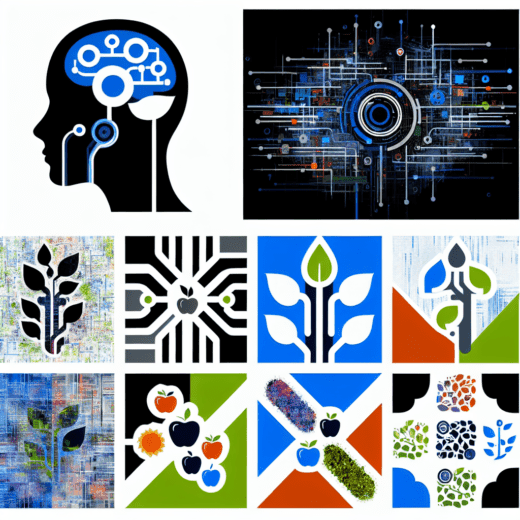Innovation Potential in AI Nutrition
The intersection of artificial intelligence and nutrition represents a groundbreaking frontier in the health and wellness industry. As individuals increasingly seek personalized dietary guidance, AI-powered virtual nutritionists emerge as a novel solution, capitalizing on vast amounts of dietary data and advancements in machine learning algorithms. This innovation allows users to receive tailored meal plans and dietary advice rooted in both current nutritional science and personal dietary needs. Unlike traditional nutritionists, AI systems can process data at an astonishing speed, providing instant feedback and adjustments. The innovation potential here is immense, with possibilities ranging from self-learning dietary models to emotion-sensitive AI that adapts advice based on user mood and feedback.
Integrating AI into nutrition also allows for constant evolution in dietary recommendations as new research and personal data inputs continually refine its algorithms. Virtual nutritionists not only provide meal plans but can also predict future dietary needs based on health trends and emerging nutritional research. This forward-thinking aspect of AI enables users to stay ahead of nutritional requirements and ensure a proactive approach to long-term health.
Market Disruption and Opportunities
The health and wellness market is ripe for disruption by AI nutritionists, with a shift from generalized dietary advice to personalized nutrition plans driven by data. The global wellness economy is projected to grow exponentially, and AI-powered nutrition platforms are strategically positioned to capture a significant share. Traditional nutrition consulting is often expensive and inaccessible to many, thus providing a fertile ground for AI solutions that democratize access through cost-efficient platforms.
One opportunity lies in tackling the growing segment of health-conscious millennials and Gen Z, who are more inclined to adopt digital health solutions. Additionally, companies can explore partnerships with fitness brands and digital health platforms to create a comprehensive health ecosystem, integrating fitness tracking and dietary advice seamlessly. This not only enhances user experience but also increases engagement and loyalty.
Another market opportunity is in corporate wellness programs. By providing AI-driven nutrition guidance, companies can promote healthier lifestyles among employees, reducing healthcare costs and increasing productivity. This B2B approach can open new revenue streams and partnerships with corporate clients seeking innovative wellness solutions.
Strategic Challenges in the Startup Space
Despite its potential, building a successful AI nutritionist startup comes with significant challenges. One of the primary hurdles is developing an algorithm that accurately reflects individual nutritional needs while accommodating diverse dietary restrictions and preferences. Properly training AI models requires vast and accurate datasets, and the lack of standardized nutritional data can impede development.
Privacy is another critical concern, as collecting and utilizing personal dietary information necessitates stringent data protection measures. Regulations such as GDPR must be adhered to, adding complexity to data management procedures. Transparency in how data is used and ensuring user trust are pivotal for success.
Furthermore, achieving product-market fit in this niche requires deep understanding of user behavior and a robust feedback mechanism to refine AI recommendations. Startups must strike a balance between automation and human touch, offering options for users to consult human experts when needed.
Key Strategies for Success
Raising capital is essential for scaling any startup, particularly in the technology-driven market of AI nutrition. Startups can pursue various fundraising avenues, including venture capital, angel investors, and crowdfunding, each with its unique advantages. However, demonstrating a clear business model and potential for scale is crucial to attracting investment.
Scaling operations involves more than just technical capabilities; it also requires building a sustainable business model. Subscription services have proven effective in generating recurring revenue, while freemium models can attract a broader user base. Strategic partnerships with healthcare providers, gym chains, and food companies can also facilitate growth by extending market reach and enhancing product offerings.
Customer acquisition strategies must be meticulously crafted to tap into the target audience effectively. Digital marketing campaigns, influencer collaborations, and content marketing are pivotal in building brand awareness and attracting initial users. Retaining these users necessitates a focus on user experience — integrating feedback loops and ensuring continuous improvement in AI recommendations is key.
Case Studies of Successful Startups
Real-world case studies provide invaluable insights into the strategies that lead to success in the AI nutrition space. One example is Noom, a startup that uses AI-driven data to offer personalized weight-loss programs. By focusing on behavioral change and leveraging AI to tailor its advice, Noom has successfully differentiated itself in the competitive health tech market.
Another noteworthy example is Foodvisor, an AI-powered app that provides nutritional advice by analyzing food photos. The app’s sophisticated image recognition capabilities offer users detailed insights into their meals, establishing itself as a leader in dietary tracking innovation. Foodvisor’s success emphasizes the importance of user-friendly technology and leveraging smartphone integration for seamless user experiences.
Academic and Industry Insights
Academic research and industry reports highlight the growing impact of AI on personalized nutrition. Studies show that personalized nutrition improves adherence to dietary plans and outcomes, as individuals are more likely to follow advice tailored specifically to their preferences and lifestyle. This academic backing supports the AI nutritionist concept as a scientifically viable and effective solution.
As the field progresses, industry reports indicate that AI-powered personalized nutrition will continue to evolve, with predictions of significant market growth. The confluence of AI, user data, and personalized health solutions represents a paradigm shift in dietary management, offering startups a unique position to lead in this transformation.
By focusing on these strategic elements and learning from past successes, startups in the AI nutrition space can effectively overcome challenges and capitalize on existing opportunities, paving the way for the next generation of health and wellness innovations.

